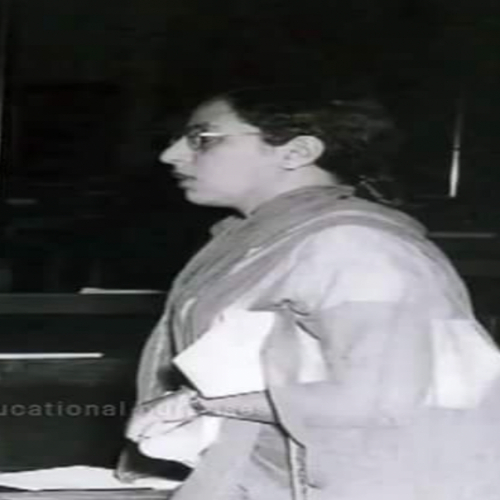Early Life
Born into a princely family on 4 April 1908 in Punjab, politics and public life was not new to Begum Aizaz Rasul. She was involved in politics at a very young age- she attended political conferences with her father and also served as his secretary.
Rasul defied many traditional norms like the purdah system.
Role in India’s Independence Movement
Rasul stepped into electoral politics in 1937 when she was elected as a member of the U.P. Legislative Assembly. She continued to be a member of the U.P. Assembly until 1951. Rasul was among the very few women legislators to be elected from a non-reserved province in British India- a remarkable achievement.
During her tenure as a member of the U.P. Assembly, she served in important posts like the Leader of the Opposition (1950-1952) and Deputy President of the Council (1937-1940).
She was a strong opponent of reservation for minorities in legislative assemblies, the partition of India, and feudal practices like the Zamindari system.
Contribution to Constitution Making
Rasul was the only Muslim woman in the Constituent Assembly. She represented the United Provinces as a Muslim League member. In the Assembly, she intervened in the debates on national language, India remaining a part of the Commonwealth, reservation, property rights, and minority rights.
Later Contributions
Rasul had an active political career post-independence as well. Rasul was elected to the Rajya Sabha (1952-1956). She was subsequently elected to the legislative assembly of Uttar Pradesh (1969 -1989).
Her views on reservations seemed to have changed. When invited to a convention to discuss the need for a reservation for Muslims in legislatures and services, Rasul sent a message –“As communal feelings have grown and the concept of Hindutva has gained popularity, it is time now to think anew of how to improve the educational and socio-economic conditions of Muslims.”
Rasul was deeply involved in popularising Hockey for Indian women. For two decades, she served as the President of the Indian Women’s Hockey Federation. Later, she went on to head the Asian Women’s Hockey Federation.
She passed away in December 2001.
Key Writings
Rasul penned her autobiography titled From Purdah to Parliament. She chronicles her journey as a Muslim woman in the Indian political and constitutional space.
- During the discussion on the Report of Advisory Committee on Minority Rights, Rasul spoke against separate electorates for minority communities. But at an earlier occasion, she had also clarified that the majority must fulfill its duty not to discriminate against minorities for joint electorates to work.
- Responding to the demands of making ‘Sanskritised Hindi’ the National language, she pointed out that very few people understood the language. Instead, she argued for adopting Hindustani as the national language.
- During the discussion on fundamental rights, she noted that the restrictions in the Draft Constitution, 1948 essentially negated the fundamental rights guaranteed. She stated, “I find that what has been given with one hand has been taken away by the other.”
- Rasul highlighted the need for ensuring ‘just compensation’ in another one of her interventions around the government’s power to acquire property.
- She also made an important speech in the Assembly in favour of Nehru’s proposal for India to remain a part of the Commonwealth while also attaining the status of a Republic.

